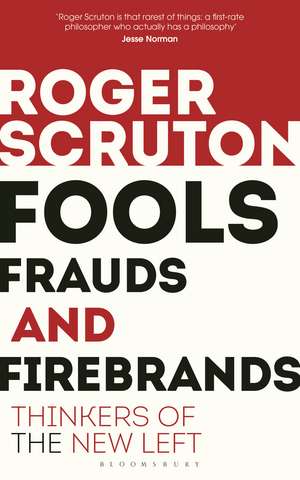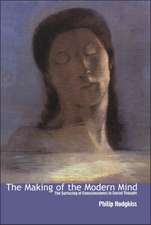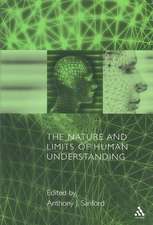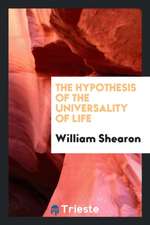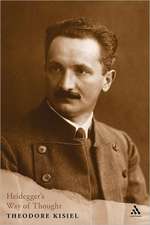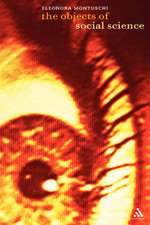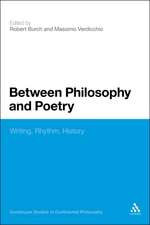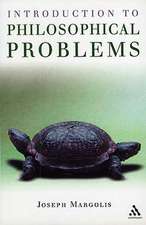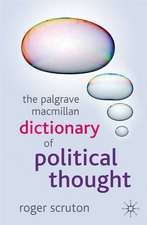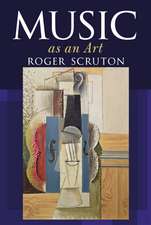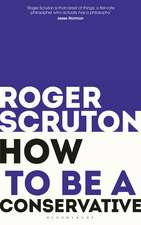Fools, Frauds and Firebrands: Thinkers of the New Left
Autor Sir Roger Scrutonen Limba Engleză Paperback – 6 mar 2019
Preț: 72.63 lei
Preț vechi: 95.29 lei
-24% Nou
Puncte Express: 109
Preț estimativ în valută:
13.90€ • 15.09$ • 11.68£
13.90€ • 15.09$ • 11.68£
Carte disponibilă
Livrare economică 01-15 aprilie
Livrare express 15-21 martie pentru 46.32 lei
Preluare comenzi: 021 569.72.76
Specificații
ISBN-13: 9781472965219
ISBN-10: 1472965213
Pagini: 304
Ilustrații: No illustrations
Dimensiuni: 135 x 216 x 25 mm
Greutate: 0.33 kg
Ediția:2
Editura: Bloomsbury Publishing
Colecția Bloomsbury Continuum
Locul publicării:London, United Kingdom
ISBN-10: 1472965213
Pagini: 304
Ilustrații: No illustrations
Dimensiuni: 135 x 216 x 25 mm
Greutate: 0.33 kg
Ediția:2
Editura: Bloomsbury Publishing
Colecția Bloomsbury Continuum
Locul publicării:London, United Kingdom
Caracteristici
Top conservative public intellectual tears vapid leftist philosophy to shreds
Notă biografică
Sir Roger Scruton is widely seen as one of the greatest conservative thinkers of the twentieth and twenty-first centuries and a polymath who wrote a wide array of fiction, non-fiction and reviews. He was the author of over fifty books. A graduate of Jesus College, Cambridge, Scruton was Professor of Aesthetics at Birkbeck College, London and a visiting professor at Oxford University. Scruton died in January 2020.
Cuprins
Introduction1 What is Left?2 Resentment in Britain: Hobsbawm and Thompson3 Disdain in America: Galbraith and Dworkin4 Liberation in France: Sartre and Foucault5 Tedium in Germany: Downhill to Habermas6 Nonsense in Paris: Althusser, Lacan and Deleuze7 Culture Wars Worldwide: The New Left from Gramsci to Said8 The Kraken Wakes: Badiou and Zizek9 What is Right?Index of namesIndex of subjects
Recenzii
Eminent British philosopher and polymath Scruton gives a sharp-edged, provocative critique of leading leftist thinkers since the mid-twentieth century ... complex and erudite.
Caustic, highly recherché, and simply great fun to read for the questing intellectual soul.
From the standpoint of a serious conservatism, it honestly assesses the political and philosophical contributions of the Left. The book also addresses what is likely our most pressing question: 'Can there be any foundation for resistance to the leftist agenda without religious faith?'
Since he no longer has a university career to protect, Scruton can now tweak the nose of academic leftism to his heart's content. Scruton is at his best, (and funniest) when trying to make sense of [Alain] Badiou's weird confection historical materialism and Platonic mathematical theory.
The book is a masterpiece ... In crisp, sometimes brilliant prose, Mr. Scruton considers scores of works in three languages, giving the reader an understanding of each thinker's overarching aim and his place within the multifaceted movement known as the New Left. He neither ridicules nor abuses the writers he considers; he patiently deconstructs them, first explaining their work in terms they themselves would recognize and then laying bare their warped assumptions and empty pretensions.
I enjoyed this immensely, both for Scruton's dry, British wit as well as for the sheer breadth of intellectuals covered in his survey.
Highly recommended
Here Scruton thoroughly and fairly debunks the ostentation, obfuscation, and terrible writing and downright deceitfulness of much of postwar Marxist-inspired philosophy. For Scruton the culprits are mainly from France and Germany-beginning with Sartre and carrying through to Foucault, Habermas, Althusser, Lacan, Deleuze, Gramsci, and Said-and he carries the attack forward to Badiou and Zizek. Even Galbraith and Dworkin take a few hits. Scruton writes from the perspective of an old-school conservative. His sympathies are with the virtues of the countryside and historically rooted associations of every sort, from churches and the US Constitution to volunteer fire departments, brass bands, and the local Grange. His personal point of view could be called sentimental . but his arguments against his foes are substantial and deep. Summing Up: Recommended. Upper-division undergraduates through faculty.
Caustic, highly recherché, and simply great fun to read for the questing intellectual soul.
From the standpoint of a serious conservatism, it honestly assesses the political and philosophical contributions of the Left. The book also addresses what is likely our most pressing question: 'Can there be any foundation for resistance to the leftist agenda without religious faith?'
Since he no longer has a university career to protect, Scruton can now tweak the nose of academic leftism to his heart's content. Scruton is at his best, (and funniest) when trying to make sense of [Alain] Badiou's weird confection historical materialism and Platonic mathematical theory.
The book is a masterpiece ... In crisp, sometimes brilliant prose, Mr. Scruton considers scores of works in three languages, giving the reader an understanding of each thinker's overarching aim and his place within the multifaceted movement known as the New Left. He neither ridicules nor abuses the writers he considers; he patiently deconstructs them, first explaining their work in terms they themselves would recognize and then laying bare their warped assumptions and empty pretensions.
I enjoyed this immensely, both for Scruton's dry, British wit as well as for the sheer breadth of intellectuals covered in his survey.
Highly recommended
Here Scruton thoroughly and fairly debunks the ostentation, obfuscation, and terrible writing and downright deceitfulness of much of postwar Marxist-inspired philosophy. For Scruton the culprits are mainly from France and Germany-beginning with Sartre and carrying through to Foucault, Habermas, Althusser, Lacan, Deleuze, Gramsci, and Said-and he carries the attack forward to Badiou and Zizek. Even Galbraith and Dworkin take a few hits. Scruton writes from the perspective of an old-school conservative. His sympathies are with the virtues of the countryside and historically rooted associations of every sort, from churches and the US Constitution to volunteer fire departments, brass bands, and the local Grange. His personal point of view could be called sentimental . but his arguments against his foes are substantial and deep. Summing Up: Recommended. Upper-division undergraduates through faculty.
